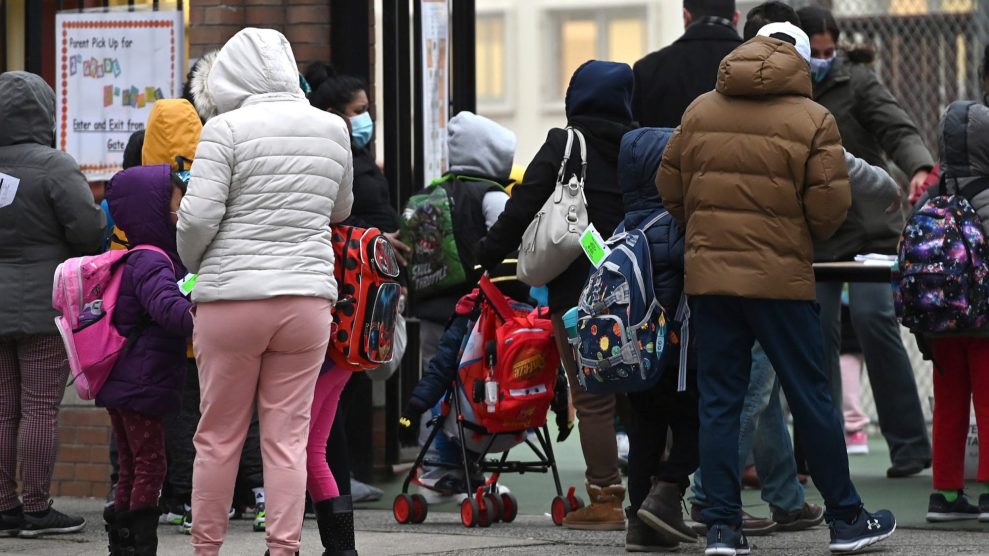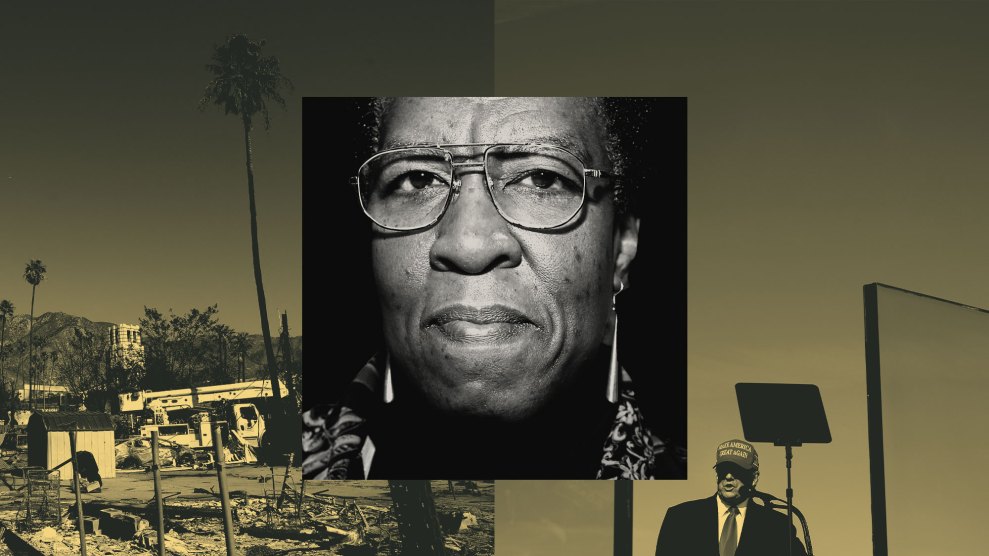
One in four kids in New York City live in poverty, according to a new report.Anthony Behar/Sipa/AP
One in four kids in New York City live in poverty, according to a sobering report released today that sheds light on the impacts of the end of pandemic-era social policies.
That amounts to nearly 420,000 children experiencing poverty in America’s largest city as of 2022, up from 260,000 in 2021—marking an increase of 66 percent, according to the report, released by Robin Hood, an anti-poverty organization, and the Center on Poverty and Social Policy at Columbia University’s School of Social Work. For adults, the statistics are only marginally better: about 23 percent, or more than 1.5 million New Yorkers, live in poverty, up from about 1.2 million adults, or 18 percent, in 2021. As Robin Hood points out, this puts New York City’s poverty rate at about double the national average. Latino, Asian, and Black New Yorkers are more likely to live in poverty than white New Yorkers, as are women compared to men—trends that also mirror the national landscape.
The sharp increase in poverty rates comes after the suspension of pandemic-era government support and tax credits. In response to Covid, the US expanded the Child Tax Credit, boosted unemployment benefits, helped with rental and childcare assistance, and even sent direct payments to certain households as part of the American Rescue Plan. The results were significant. In 2021, New York City’s adult poverty rate fell by 45 percent, and the child poverty rate dropped by a stunning 68 percent.
Kids across the nation benefitted from these policies: child poverty was cut in half, from 10 percent nationwide in 2020 to 5 percent the following year. But by 2022, child poverty more than doubled, surpassing its pre-pandemic rate to reach 12 percent, as my colleague Inae Oh reported at the time.
Experts involved in putting together the new report put politicians on blast for putting politics over the well-being of poor New Yorkers.
“We know that fully refundable tax credits, housing vouchers, and childcare subsidies can move millions out of poverty and hardship. But we have lacked the will to keep these policies in force,” Robin Hood CEO Richard Buery Jr. said in a statement.
“We know what works,” added Christopher Wimer, director of Columbia’s Center on Poverty and Social Policy, “it’s just a matter of doing it.”
But as Princeton sociologist Matthew Desmond told my colleague Mike Mechanic last year, politicians aren’t the only ones with the power to tackle poverty.
“In a nutshell, poverty persists because of a lot of us benefit,” Desmond said. “We allow it, we permit it, we like it. Poverty persists because of the unrelenting exploitation of the poor in the labor markets, housing markets and financial markets, and because we design a welfare state that does much more to subsidize affluence than alleviate poverty. And we continue to be segregationists. We continue to build walls around our affluent communities and exclude people from the opportunity within.”

















